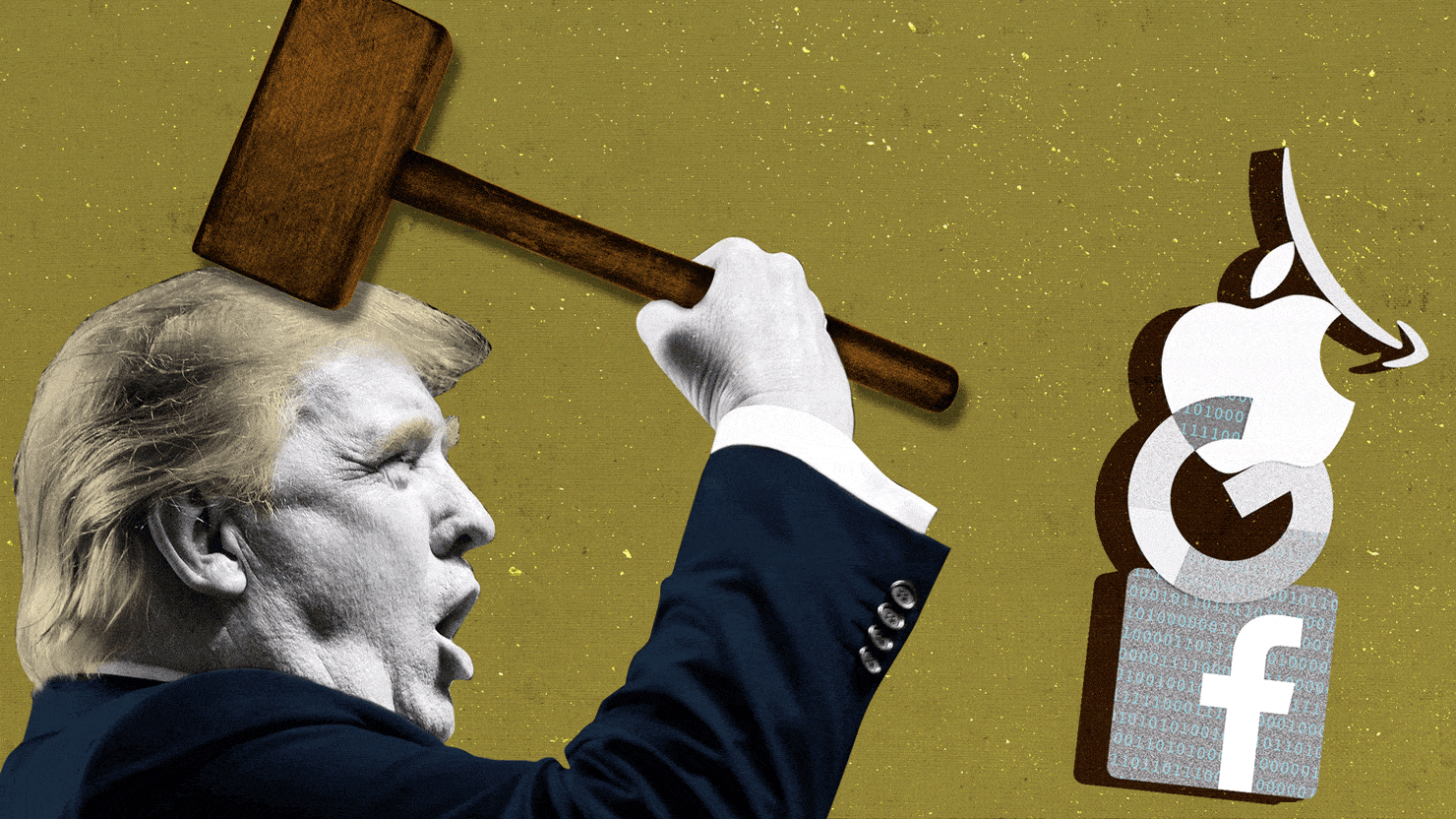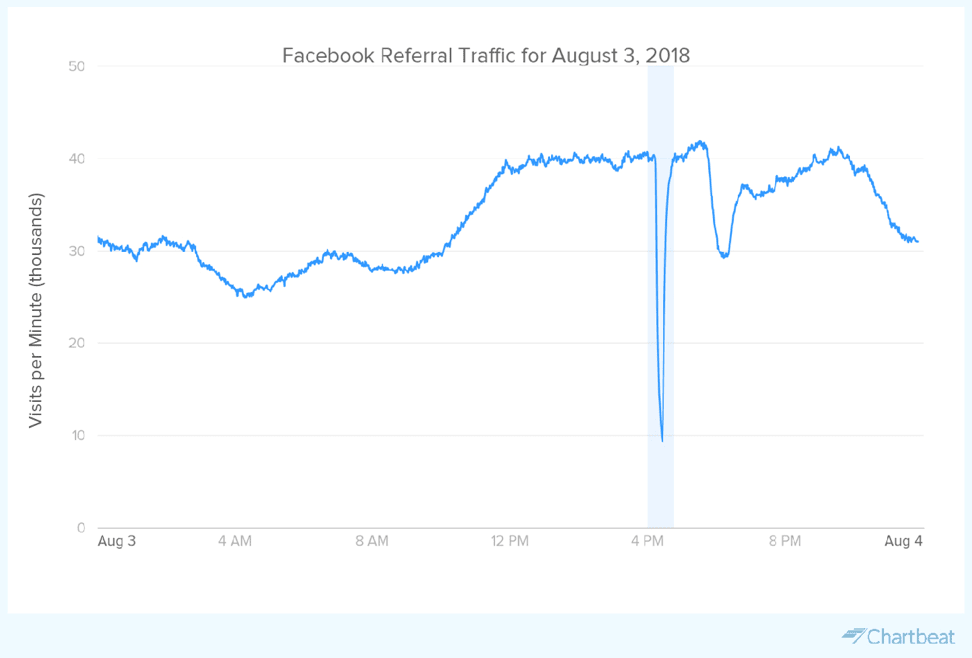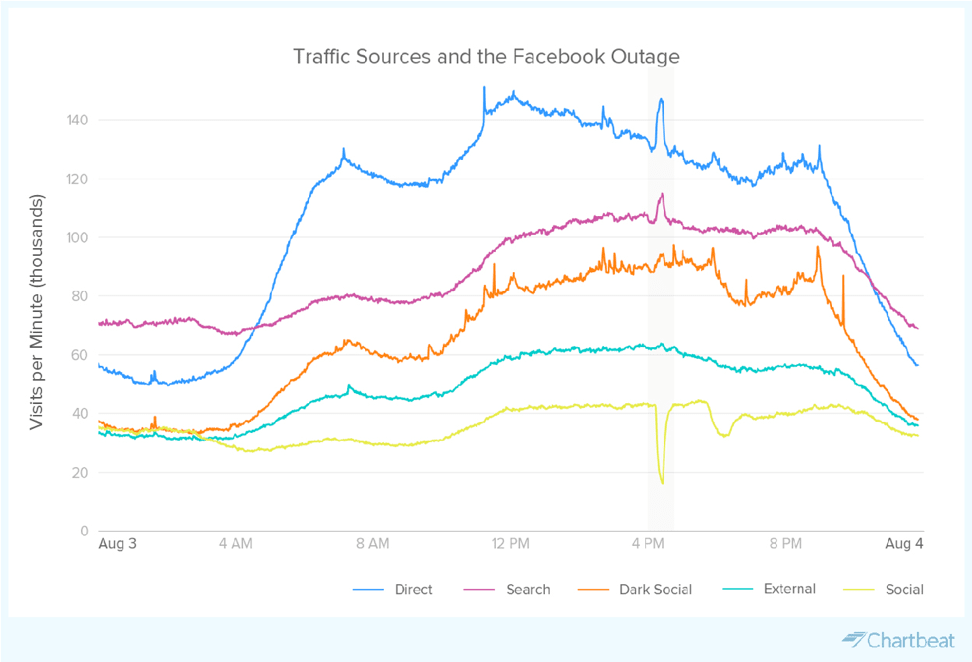To Make the Internet Great Again, Trump Must Smash Facebook and Its Tech Oligarch Friends
The tech giants are strangling our culture and economy.

Joel Kotkin11.10.18 9:41 AM ET

OPINION
Photo Illustration by Elizabeth Brockway/The Daily Beast
Even as many Americans look with horror on the authoritarian blusterer in the White House, we are slowly succumbing to a more pernicious, less obvious and far more lasting tech oligarchy gaining ever more control over our economy, culture and politics.
“We are certainly looking at” bringing antitrust cases against Amazon, Facebook and Google,” Trump said in an interview just before the election, adding that he’s had “so many people” warning him about their overwhelming power.
Unreliable narrator though the President may be, people are indeed waking up to the tech giants’ massive and largely unchecked power, and the consequences of turning over our channels of communication to them. That includes World Wide Web inventor Tim Berners-Lee, who said earlier this year that he “was devastated” by how the internet has been used in recent elections, including our presidential race, and that he’s working to create a new system now that "the web had failed instead of served humanity, as it was supposed to have done, and failed in many places.”
We once saw the tech industry as a refreshing alternative to the staid old corporate establishment, a entrepreneurial environment where all kinds of thoughts and images would have free rein. Yet as the industry has evolved, it has become one of the most concentrated and monopolistic America has ever seen, determined to stamp out prospective rivals and expand control of both media and politics.
Amazon’s recent decision to put its two new “headquarters” operations in New York and Washington illustrates the growing collusion of tech, culture and media. From an economic or geographic point of view, other cities like Columbus, Dallas, or Indianapolis, where tech growth is greater and where lower housing and living prices are drawing more millennials, might have made more sense. But by locating in the most expensive and connected northeastern cities, Amazon and Jeff Bezos are placing themselves in the heart of the nation’s dominant media and political culture. With almost limitless cash, considerations like office or housing costs, or even taxes, that impact most normal businesses apparently mean very little.

The early phases of the digital revolution, which I witnessed in California in the 1970s and 1980s, were shaped by relentless competition between upstarts and firms that, just a few years earlier had been upstarts. Scores of companies launched their own personal computer lines, software and peripherals.
Today, a handful of companies that have colluded to keep wages down dominate the digital economy, in part by buying up any emerging competitors. Once we had bold notions of the internet helping to create an ever-expanding realm of options in the arts and journalism. In 1980, the late Alvin Toffler suggested in The Third Wave a “de-massified media.” Instead, we have Google controlling nearly 90 percent of search advertising, Facebook almost 80 percent of mobile social traffic, and Amazon about 75 percent of American e-book sales, over forty percent of all online sales and, perhaps most important, nearly 40 percent of the world’s “cloud business.” Together, Google and Apple control over 95 percent of operating software for mobile devices. Microsoft still accounts for over 80 percent of the software that runs personal computers around the world.
Rather than the old science fiction meme of tyranny through machines, the tech giants are expanding their control of how we think. Rather than simply seeking to provide speedier pipelines, they want to control what is in the pipe. In this effort the oligarchs enjoy enormous advantages. Nearly two thirds of readers now get at least some of their news through Facebook and Google—two companies that employ no reporters and are often in fact hostile to them. This dominance is even greater, in both the U.S. and the U.K., among millennials who, by some account, are almost three times as likely to get their information from these platforms than from print, television or radio.
In some senses the traditional media doesn’t have a chance. Overall print publishing (books, newspapers, magazines), has lost 290,000 jobs—40 percent of its 2001 job base. With Facebook and Google accounting for over 89 percent of the growth of the growth in online advertising in 2017, it’s exceedingly difficult for new publications to survive online given the dominance of the oligarchic platforms.
Here’s one sign of their dominance: When Facebook went down for 45 minutes in August, direct traffic to publishers immediately shot up: by more than 10 percent to website and 20 percent to mobile apps. Search traffic to publishers went up by nearly 10 percent, and, a little surprisingly, overall web traffic went up by about 2 percent.
“One of the fascinating things we noticed in the data was just how instantaneous the reaction was,” wrote Chartbeat. “When Facebook went down, it took only seconds for users to break the habit.”

While Facebook both pushes traffic to and competes with publishers, a similar pattern emerged when YouTube went down for an hour one evening in August: Web traffic to Chartbeat publishers shot up 20 percent, although about half of that increase came from searches related to the YouTube outage.

Having eclipsed the news business, the tech bosses are now looking to outright buy its remaining trusted brands. First Zuckerberg’s college roommate bought the New Republic in 2012 and then Jeff Bezos purchased the Washington Post in 2013 while Laurene Powell Jobs, the widow of the Apple founder, bought the Atlantic. This year, Marc Benioff, founder of San Francisco-based Salesforce.com, purchased long-distressed Time magazine for $190 million. For its part, Google is also promoting bot-produced journalism, while planning to invest $300 millioninto subsidizing favored reporters. Zuckerberg himself is hoping to run for president.
In China, the estimable South China Morning Post is now owned by Alibaba.com, the country’s equivalent to Amazon. Since the takeover, the once fiercely independent paper promotes a more positive view of the Chinese dictatorship for the rest of the world to read.
News media is hardly the only content the oligarchs seek to dominate. Amazon has achieved enormous influence over the book industry of which it is by far the largest seller, constituting nearly 40 percent of all books sales, and upwards of 90 percent of eBook sales. Great publishing chains such as Hachette and Macmillanhave found themselves hostage to Amazon’s requests. YouTube, which was acquired by Google in 2006 for $1.65 billion in stock, has become determinative in the music industry, even as it hardly pays artists.
Hollywood also is clearly in tech giants’ sites. Netflix, a company financed by Silicon Valley venture firms, is now worth about as much as Disney and, along with Amazon, produces an ever-growing share of the award-winning programming on television. Both Netflix and Amazon each have well over 100 million subscribers, an unprecedented clientele for video production, yet the paychecks of many middle-class Hollywood workers are shrinking as these companies grow and exert ever more control over what people do on sets of movies they finance, including a ban on asking for phone numbers of co-workers or even looking at people for more than five seconds.
Of course, these new titans offer ritual denials from these new owners that they won’t influence content, but if you believe that, please buy a bridge that crosses over to my family’s native Brooklyn. When the equally rapacious moguls of the early 20th Century, like the McCormick’s of Chicago or William Randolph Hearst, bought papers, they pushed an agenda of imperial expansion, anti-unionism, and resistance to those assaulting their fortunes. Oligarchs historically have tended to buy media, art or even office buildings not necessarily just to protect their wealth, but, as Jeffrey Winters, author of Oligarchy, suggests, also to serve their own “vanity and advance their points of view.”
Some on the left may be tempted that given the tech oligarchs ostensibly “progressive” positions this takeover is a good thing. They certainly don’t want conservative billionaires, like Sheldon Adelson or the Sinclair’s, buying media, although what they own are usually local outlets with limited reach. Most oligarchs, including the granddaddy of the current wave, Michael Bloomberg, concentrate on the bigger markets, and those with the most influence.
The Bloomberg’s and Bezos’ are more like all autocrats seeking control than the great defenders of democracy that their publicists like to portray. Like all good upper-caste members, they seek to control the mores of society against both the depredations of louts like Trump and any grassroots attempts to undermine their oligopolies. Bernie Sanders discovered this when he took on Amazon and received scathing treatment in Bezos’ plaything, The Washington Post.
Let’s put it this way: good luck publishing a piece like this one in the Post; at Bloomberg Business Week, one longtime staff correspondent told me, the very use of the word “oligarch” is not permissible, since that’s not the proper image of the boss.
Bezos and Bloomberg are hardly alone in their passion to instruct others. The need to maintain control is critical to all oligarchies. Facebook’s attempts to “curate” content not only takes out open racists and Russian bots, but also, according to former employees, simply contrary and largely conservative views. Due to their new monopoly status, these firms, as Trump-supporting tech entrepreneur Peter Thiel notes, don’t have to “worry about competing with anyone,” allowing them to indulge their own particular prejudice to a greater extent than those who might have to worry about alienating customers.
Short of anti-trust action, not much can impact monopolists with unlimited funds. Over 70 percent of Americans, notes a recent Pew study, believe social media platforms “censor political views.”
This isn’t the future we’ve hoped for. I won’t bet on it but here, at least, is a chance for Trump to smash some of the right idols for a change. Maybe this is one case progressives, moderates, and conservatives alike could find that rarest of thing: common ground.
No comments:
Post a Comment